Multibit Classic is a Bitcoin wallet that was popular during the 2010s. It was eventually superseded by Multibit HD before both of them were abandoned on July 26, 2017. As of today, many people still have Multibit Classic wallets because they have not yet migrated to a more modern software.
Such was the case of a friend that needed my help. They had bought Bitcoins in 2014 and now wanted to transfer them out of their wallet. The thing is, they didn’t have Multibit Classic on their new computer and the official copies of the software are no longer available. To run it, you are expected to download the software’s source code from its GitHub repository, analyze it to make sure it is free of malware, and then compile it by yourself. This is not achievable to most people.
As such, I am providing copies of Multibit Classic 0.5.18 on Windows, Mac, and Linux. These are the official copies as they were released by its developers back in 2014:
| Download link | Security hash (SHA-256) |
|---|---|
| For Windows | 6aac2120cb0d0b953c1abf15edf90bde198476a4c4d872989964b46f106264e6 |
| For Mac OS X | 5bbc25445b00352f12006e1eb5b2f2e2d18b613cd01c71a0125f5942b2760b95 |
| For Linux | 992f2f59030a2f2ff8a4d384dc856055287939c98a46dcf809c3982a583c7a1f |
Multibit complains that Java is not installed!
You may encounter an issue where Multibit claims that “Java has not been found on your computer.” This is a common hurdle when running Multibit Classic on modern systems.
The first step is to confirm that you actually have the Java Runtime Environment (JRE) on your machine. You can download the latest version directly from the official Java website.
If Java is installed but Multibit fails to detect it, you will need to manually point the software to the correct location
using an environment variable named JAVA_HOME. While the steps vary depending on your operating system, the underlying
concept remains the same. For the purpose of this guide, we will focus on the process for Windows.
How to set the JAVA_HOME variable on Windows
To start, press Windows Key + R on your keyboard to open the Run window. Copy-paste rundll32 sysdm.cpl,EditEnvironmentVariables
and click OK.
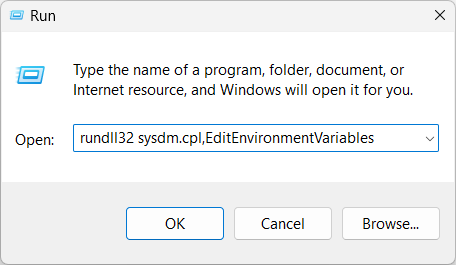
An Environment Variables window will appear. Look for the User variables section and click the New… button.
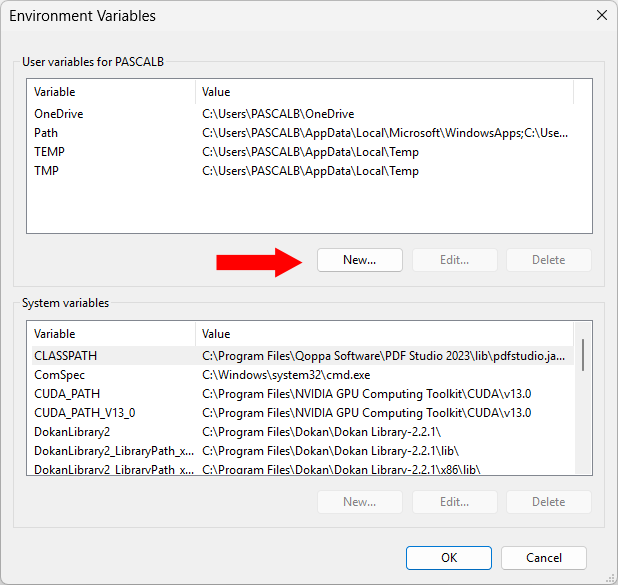
A new window will appear. Enter JAVA_HOME as your variable name. Next, click the Browse Directory… button. In a
standard Windows setup, Java is typically installed at C:\Program Files\Java or C:\Program Files (x86)\Java. Navigate
to one of these locations and locate a directory starting with jre or jdk (for example, jre1.8.0_461). Select it and
click the OK button. The Variable value field should now be populated with the path to your Java installation.

Click OK to close the current window and OK again to close the Environment Variables window. Try launching Multibit Classic again.
How do I access my Multibit wallet file?
The process for accessing your funds depends on the type of file you have in your hands. Since Multibit Classic used different formats to store your wallet information, the first step is to identify your wallet’s file extension and follow the corresponding instructions below.
I have a .wallet or .wallet.cipher file
Open Multibit Classic. In the menu, click File and Open Wallet.
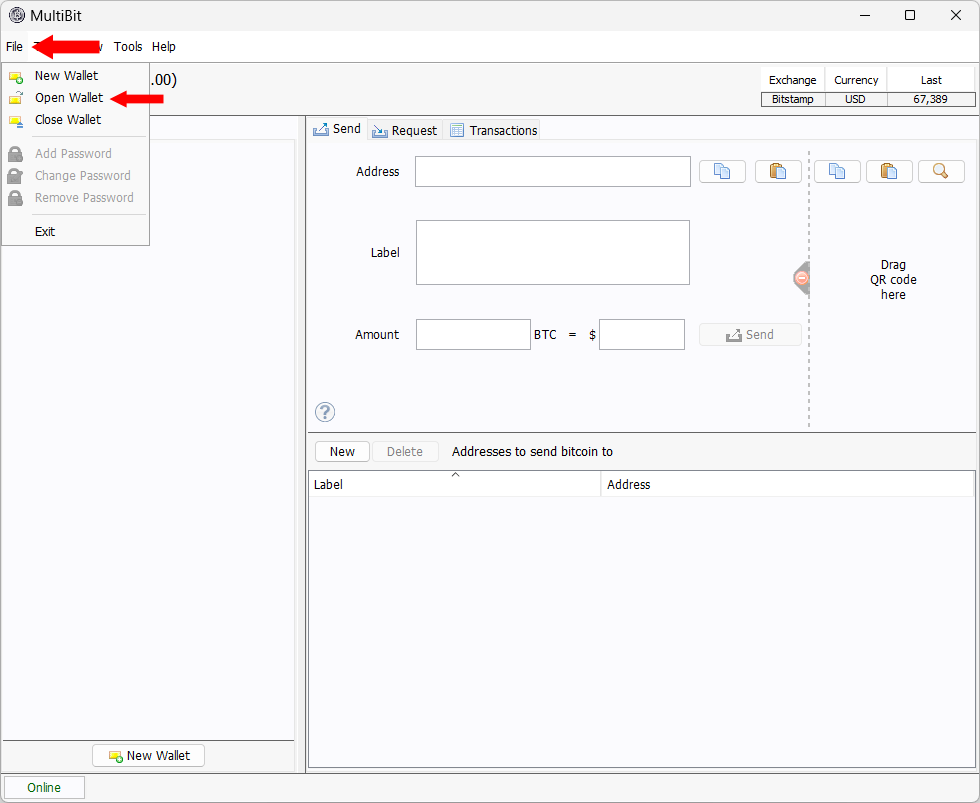
You will be prompted to select a file. Choose your .wallet or .wallet.cipher file. If you are asked for a password,
enter it.
Your wallet should now appear on the window’s left panel.
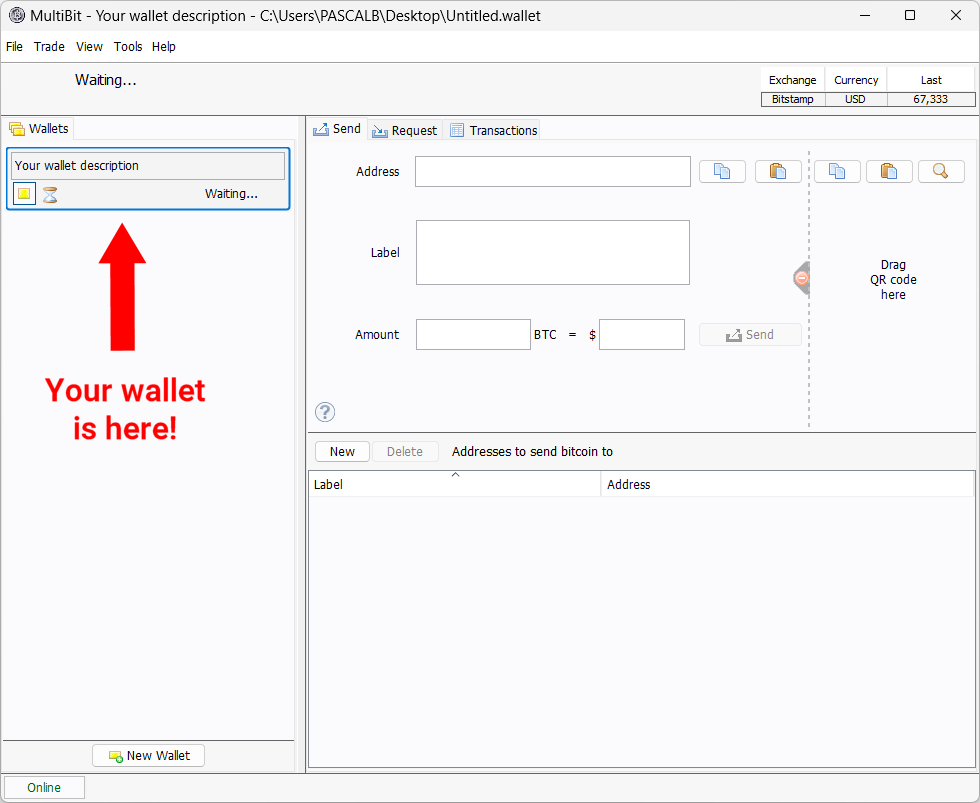
I have a .key file
Open Multibit Classic. In the menu, click File and New Wallet.
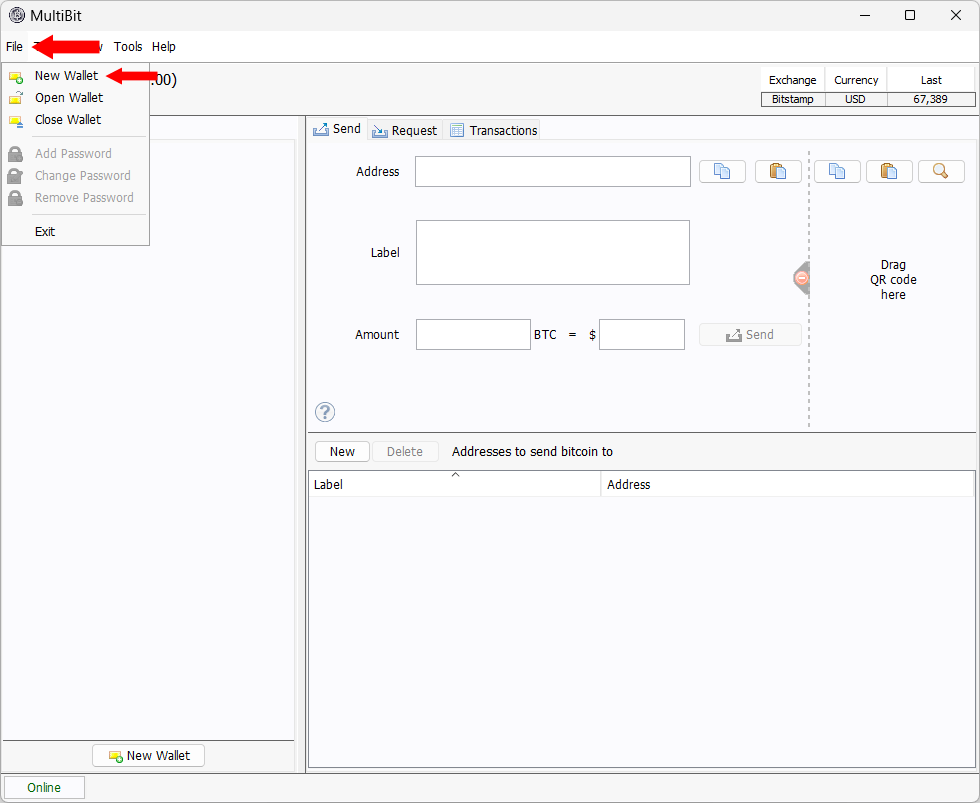
Select where you would like to save your wallet. Your newly created wallet should appear in the window’s left panel. Make sure you select it by clicking it.

In the menu, click Tools and Import Private Keys. Multibit is a bit buggy, so the menu item might be grayed out. If that’s the case, close Multibit and reopen it.
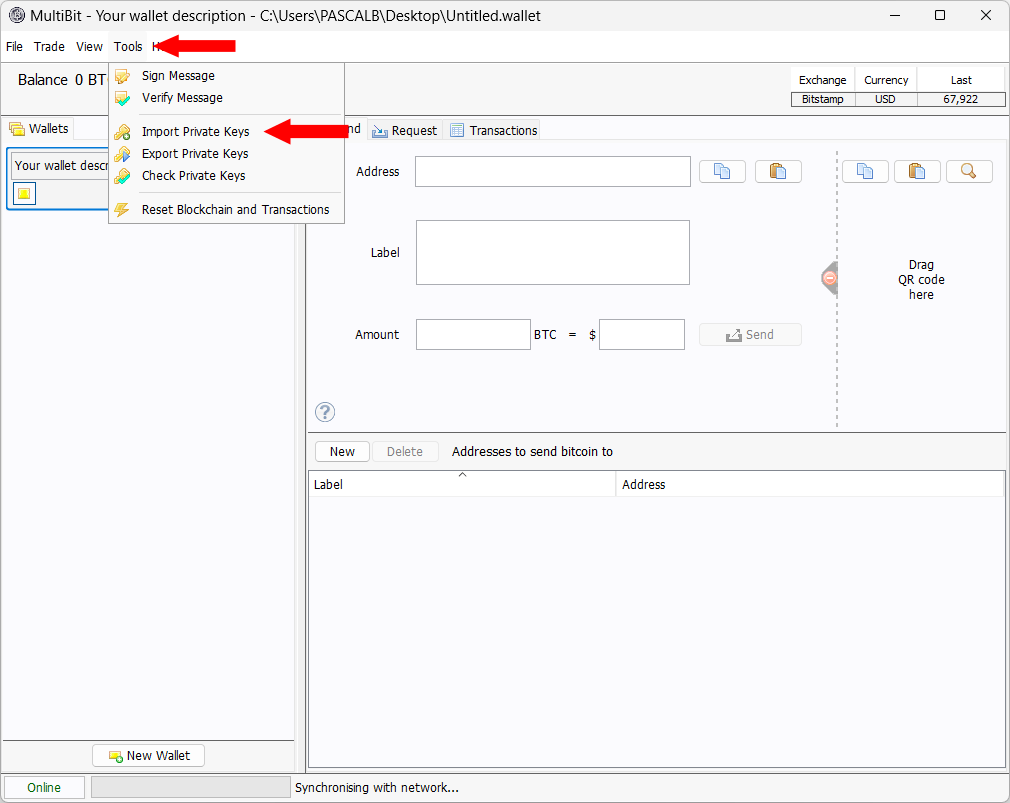
Click Import from… and select your .key file. Enter the password, if there’s one.
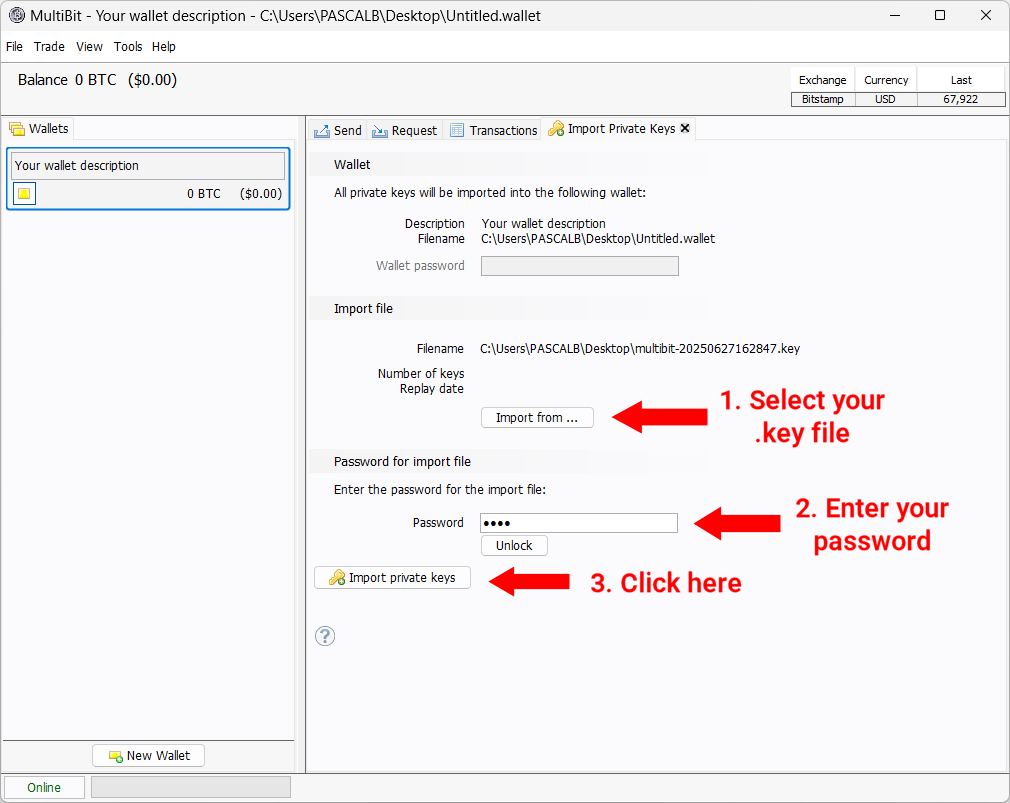
Click Import private keys. If all goes well, you should get the following message: Importing private keys... completed successfully.
I have a .wallet.aes or .zip.aes file
These files were not generated by Multibit Classic, but by Multibit HD. Click here to download Multibit HD.
How do I recover a lost password for a Multibit wallet?
Every recovery case is unique, and success depends heavily on the wallet file you have and how much of your password you
can recall. Generally, recovery involves brute-forcing, or using specialized software to automate millions of password
guesses. Your chances are significantly higher if you hold a .key file, as these are much faster to crack than standard
.wallet or .wallet.cipher files.
For a detailed breakdown of the process and an assessment of your odds, I recommend reading my full guide on how to recover your Multibit Classic wallet.